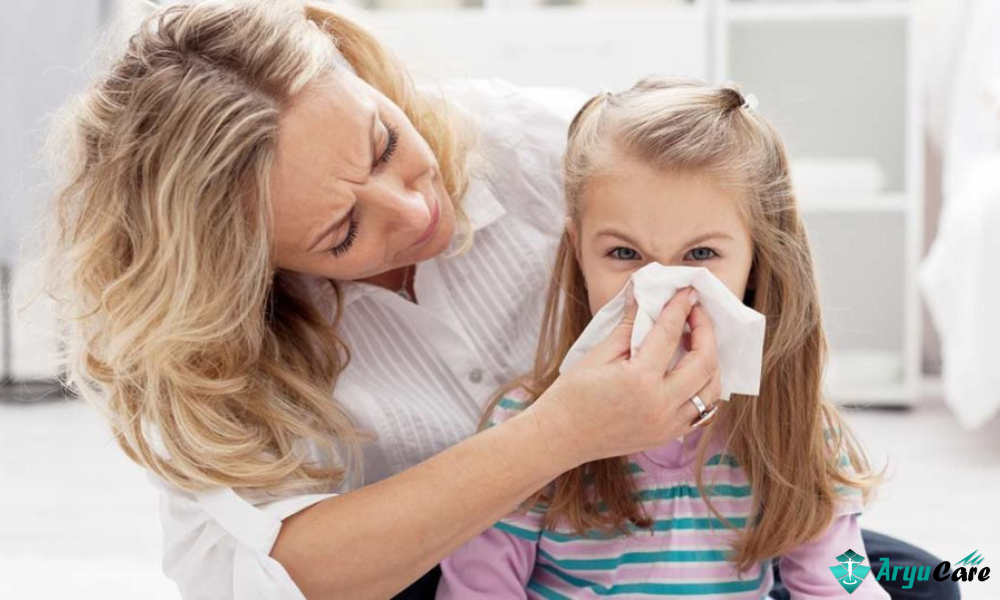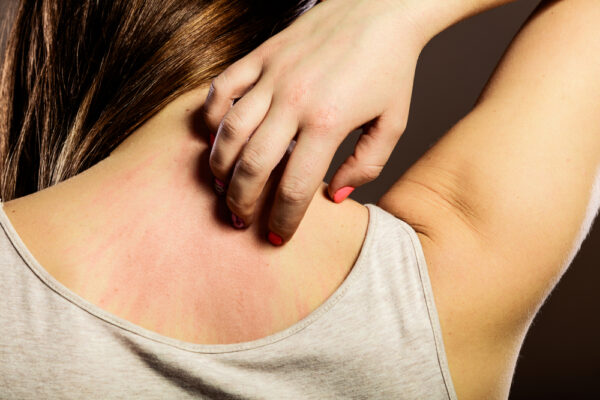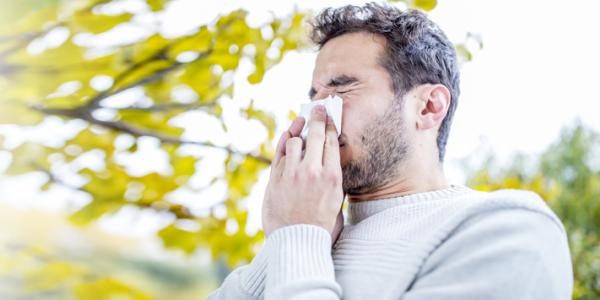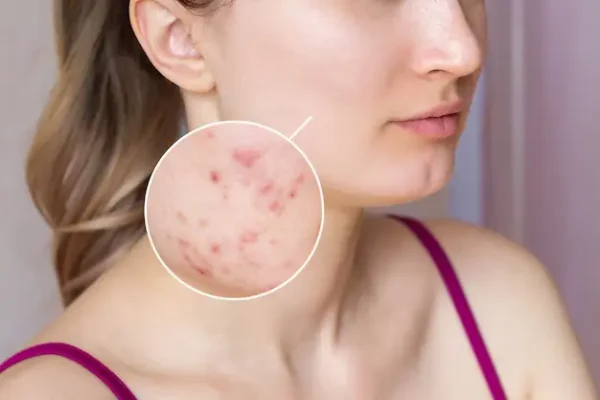Allergy
What Are The Allergies Symptoms?
Allergies
Allergies are among the most common chronic conditions worldwide. Allergy symptoms range from making you miserable to putting you at risk for life-threatening reactions.
According to the leading experts in allergy, an allergic reaction begins in the immune system. Our immune system protects us from invading organisms that can cause illness.
If you have an allergies, your immune system mistakes an otherwise harmless substance as an invader. This substance is called an allergen.
The immune system overreacts to the allergen by producing Immunoglobulin E (IgE) antibodies. These antibodies travel to cells that release histamine and other chemicals, causing an allergies reaction.
Allergy Symptoms
An Allergies reaction typically triggers symptoms in the nose, lungs, throat, sinuses, ears, lining of the stomach or on the skin. For some people, allergies can also trigger symptoms of asthma. In the most serious cases, a life-threatening reaction called anaphylaxis (an-a-fi-LAK-sis) can occur.
A number of different allergens are responsible for allergic reactions. The most common include:
- Pollen
- Dust
- Food
- Insect stings
- Animal dander
- Mold
- Medications/Drugs
- Latex
Allergy Diagnosis
If you or your child have allergy symptoms, an allergist / immunologist, often referred to as an allergist, can help with a diagnosis. An allergist has advanced training and experience to properly diagnose your condition and prescribe an allergy treatment and management plan to help you feel better and live better.
Treatments
Treatment for skin allergy varies depending on the problem and the allergen, but usually includes two approaches:
- Avoid the allergen, if it is known
- Use medicines, creams, and other strategies to relieve the itching, swelling, or pain
Below are some recommendations for treating each of the allergic skin reaction types.
Eczema
- Avoid rubbing , scratching, or scrubbing the skin
- Moisturize the skin several times a day with an ointment or lotion that has no alcohol, fragrance, or dye. Use this lotion or ointment after you bathe when the skin is still damp.
- Avoid putting wool or lanolin on the skin. Lanolin is in some skin products.
- Use gentle soaps and shampoos.
- Take short baths or showers, and make sure the water is not hot. Lukewarm water is gentler on the skin.
Hives and Angioedema
- For acute (sudden) hives and swelling a, an antihistamine (like Benadryl®) can stop the allergic reaction. In the future, try to avoid the allergen that caused the reaction. Carry medicine, such as an EpiPen, if you know you have severe allergic reactions to something.
- The cause of chronic (ongoing) hives and swelling is unknown. For some people, alcohol, aspirin and other nonsteroidal anti-inflammatory medicines (NSAIDs) can trigger a reaction. Try to understand your triggers and avoid them. It also helps to keep the skin cool and avoid tight clothes. Antihistamines are the most common medicines used to treat hives.
Allergic Contact Dermatitis
- A skin reaction from allergic contact dermatitis will go away, but usually takes from 14 to 28 days.
- If you come in contact with something that can cause allergic contact dermatitis (like poison ivy), scrub the skin with soap and water right after.
- The doctor may give you an antihistamine or cortisone medicine to take to help the rash heal. It will still likely take at least a couple weeks for the rash to go away.
- Calamine lotion and cool compresses can relieve some of the itching and pain. Lukewarm oatmeal baths can also soothe the skin.
What are the types of dermatitis?
The types of dermatitis include, but are not limited to:
- Atopic dermatitis (eczema).
- Contact dermatitis.
- Diaper Dermatitis (rash).
- Dyshidrotic dermatitis.
- Neurodermatitis.
- Nummular dermatitis.
- Perioral/Periorificial dermatitis.
- Seborrheic dermatitis (dandruff, cradle cap).
- Stasis dermatitis.
See the “Causes and Symptoms” section for more details about the types of dermatitis.
How do I Find Out What I’m Allergic To?
Your doctor can check to see what you’re reacting to, but finding the exact cause may be hard. Skin tests can only show what you’re sensitive to. They can’t tell what touched your skin in a specific spot on a specific day.
Doctors often use the T.R.U.E. test (Thin-layer Rapid Use Epicutaneous Patch Test). It’s a pre-packaged set of three panels that your doctor will stick to your back. Each is smaller than a dollar bill and has 12 patches with samples of possible allergens. You wear them for 2 days. Then the doctor takes them off to see if you’ve had any reactions. You might need to come back a few more times, since some reactions could show up as many as 10 days later.
You might be allergic to something that isn’t in the standard T.R.U.E. test. To figure that out, your doctor may do more patch testing. They’ll choose substances you might contact in your work, home, or hobbies.
If you have a mild reaction in any patch test, you might need to follow up with a R.O.A.T. test (Repeat Open Application Test). It works a lot like the T.R.U.E. test, but you do it yourself. Put the suspected allergen, say, sunscreen, on your skin during the day in the same spot over several days. This can help confirm or rule out your sensitivity.
The dimethylglyoxime test looks for metal objects that have enough nickel to cause a reaction. Your doctor can test things in the office, or you can buy a kit to test jewelry and other items yourself.
How Is Contact Dermatitis Treated?
The best method is prevention. Find out what causes your rash and avoid it. You may need to wear gloves to protect your skin.
When you do have a reaction, try to ease the symptoms and prevent an infection. Don’t scratch, even though that’s a hard urge to resist. Over-the-counter products and home remedies can help relieve the itching and stop the swelling. Try these:
- Hydrocortisone cream
- Ointments like calamine lotion
- Antihistamines
- Cold compresses
- Oatmeal baths
Talk to your doctor about what’s best for your specific rash. For example, corticosteroids are good for poison ivy, oak, and sumac. They can prescribe stronger medicines if needed, too.
Read more:
ARZEP Nasal Spray | KENACORT 0.1% ORAL Paste | ALERID 10mg Tablet 10’s | Allegra 120mg Tablet 10’s | Allegra 180mg Tablet 10’s | Azithral Eye Drops 0.1% (3ml) | CIPLACTIN Tablet 15’s | DESLOR 5mg Tablet 10’s | ELOCON Cream 10gm | FLIXONASE 0.05% Innospray 120md | FLOHALE 100mcg Rotacap 30’s






I found the section on skin allergies particularly helpful. I never knew that hives and eczema could be signs of an allergic reaction. Learning about these symptoms will definitely help me be more aware of what’s happening with my body.
This article serves as a great reminder to take allergies seriously and not ignore seemingly minor symptoms. It’s easy to brush off sneezing or itching as just a nuisance, but they could be indicative of a larger allergy issue that needs attention.
This article covers the basics well, but it would be great to see some insights on natural remedies or lifestyle changes that can alleviate allergy symptoms.
It’s great that you mentioned the importance of consulting a healthcare professional for accurate diagnosis. Misinterpreting symptoms can lead to ineffective treatment.
This article reaffirms the importance of seeking medical advice for persistent allergy symptoms. It’s a reminder not to ignore them.
Overall, this article serves as a valuable resource for anyone looking to learn more about allergy symptoms and how to recognize them. I appreciate the thoroughness of the information provided and look forward to reading more from you in the future!
Fantastic advice! Could you also recommend any specific eye exercises to help alleviate eye strain from prolonged screen time?
Great overview of allergy symptoms! It’s helpful to know the common signs to look out for. Your explanation was really clear and informative. Looking forward to more articles like this!
It’s reassuring to know that there are treatments available for managing allergy symptoms. The article provides a good overview, but I’d be interested in learning more about the effectiveness of different treatment options.
Hey there! Thanks for this helpful article! Allergies can be such a pain, right? It’s like your body suddenly decides it’s allergic to, well, everything. 😅
Allergy symptoms can be such a nuisance, right? From sneezing fits to itchy eyes and even rashes, they really know how to make us feel miserable. It’s important to stay informed about these symptoms so we can take action early. Thanks for sharing this helpful info!
Allergies can be tricky! Sneezing fits and itchy eyes are my telltale signs. What symptoms do you experience?
Great article on allergy symptoms. It’s so important to recognize them early on, especially as allergy season kicks into gear.
I found the section on food allergies particularly eye-opening. It made me wonder about the prevalence of food sensitivities versus true allergies. Could you dive deeper into the differences between them in another article? Keep up the good work!
It would be helpful to have a printable checklist summarizing the symptoms mentioned in the article. That way, readers could easily refer to it and discuss any concerns with their healthcare provider.
Allergy season: Where sniffles meet resilience. Let’s find ways to bloom through the sneezes. 🌸🤧 #BloomWithAllergies
Finding allergy symptoms is like playing detective with your nose – follow the trail of sneezes and solve the case of the sniffles!